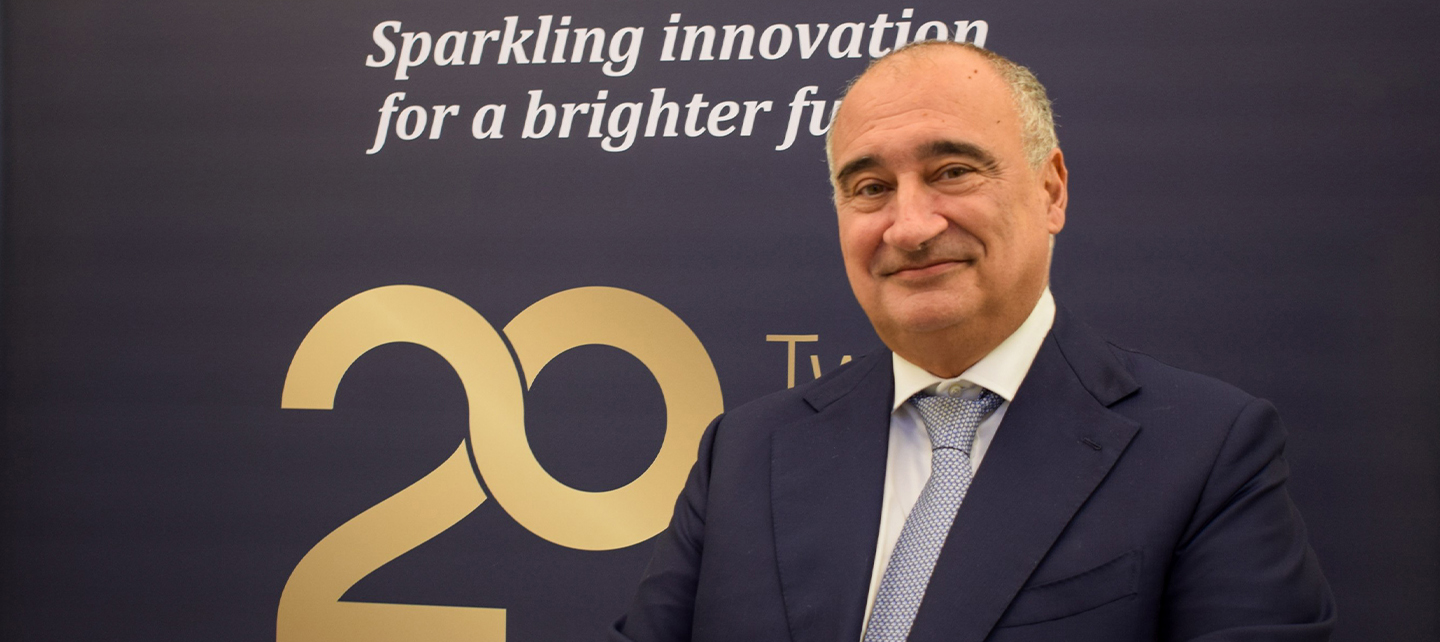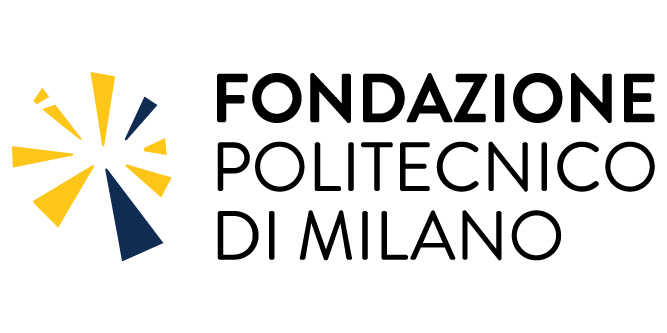Andrea Sianesi: Our Foundation is 20 years old! Let me tell you about the challenges ahead

Fondazione Politecnico di Milano is now twenty years old, and its President Andrea Sianesi talks to us about what is new and exciting and the challenges that lie ahead. The main objective, as he tells us, is to continue growing through innovation. “I see our Foundation as a pioneer over the next twenty years, opening new roads for Politecnico di Milano, venturing into unexplored frontiers which the university still has to reach”.
We are saying goodbye to a year bursting with novelties and change. What were most important for the Foundation?
The biggest change was our resolve to give the Foundation a very clear identity. We are part of Politecnico and our aim is to manage the challenges we meet to the best of our ability, adding value to the university we belong to. We have singled out two areas in our Operations that can look out for opportunities for Politecnico di Milano; these are Companies and Territories. And there are three other areas responsible for exporting Politecnico’s work of excellence, the area of technological entrepreneurship with PoliHub, the STEAM area and the area of internationalisation projects. Alongside these is a consolidated Business Unit, which looks after all digital innovation projects for public authorities. We have given these areas their own visible identity, bringing in project leaders and also setting up a vice directorship to manage human resources.
The funds allocated through the Italian National Plan for Recovery and Resilience, according to Government estimates, will help to change the face of our country and spur growth through innovation and investment in human capital. What is the Foundation’s role in all this?
Fondazione Politecnico di Milano is taking an active part in NPRR projects in three ways. Firstly, we are collaborating to establish an innovation ecosystem. With MUSA – Multilayered Urban Sustainability Action – we have inaugurated a new model of public-private partnership, built on the economic, social and environmental sustainability of public places. The four main universities in Milan, the University of Milano-Bicocca, Politecnico di Milano, University Bocconi and the University of Milan, are already at work to change the face of our city. Politecnico is the lead partner in two project areas and the Foundation provides coordination for the work, and, with PoliHub, is involved in the projects for technological transfer and entrepreneurship development. The second way in which the Foundation takes part in NPRR is through the support it gives to a large number of companies and institutions for innovation projects that fall under the Italian Ministry of Economic Development and which have been assessed positively. Thirdly, the Foundation also heads the administrative and management operations at the Centre for Sustainable Mobility, a project to stimulate demand and supply on topics linked to decarbonisation, road decongestion and smart mobility. I will also add that, through its digital innovation business unit, Fondazione Politecnico di Milano will be in charge of all the digital healthcare projects that our regional authorities and public hospitals will implement in the upcoming years (digital medical files, electronic health records, telemedicine).
Research and technological transfer are two domains that play a crucial role in connecting the university to the industrial world. What message would you give companies that work with us?
Over the years, the Foundation has developed the innovative Joint Research Platforms format, known as JRP, including the two on hydrogen and hospital infrastructure. We support companies by managing multiclient projects where several companies have the same need to implement transversal research initiatives on wide-sweeping topics that bring together skills and expertise scattered through many departments at Politecnico di Milano. These are complex projects, platforms that involve various companies and the university. The Foundation is in the director’s chair, defining and assessing the university’s contribution and carefully identifying the best opportunities that can satisfy what companies tell us about their requirements in applied research.
What is your view of internationalisation and what ambitious projects would you say could reach beyond the borders of Italy and Europe?
For some years, the Foundation’s ambition is to act as a tool supporting the university’s internationalisation, planning initiatives in areas and on topics that are in synergy with those at Politecnico. We have set up three main areas of work. The first, which is ongoing, is to explore the opportunities that come from outside Europe. These are initiatives in partnership with big players such as the World Bank and other multilateral institutions like the United Nations Industrial Development Organization (UNIDO). And then there are our emblematic projects. One was Innovation House at Dubai, where we brought the Fuori Salone model to the Dubai international Expo, the first held in an Arab country. (Note: Fuori Salone indicates a series of events organised in the context of but outside the official venue). Our Fuori Expo ran for six months, with satellite events to Expo 2020. As an initiative of great impact, it was the occasion to strengthen our partnerships with several institutions, first and foremost Regione Lombardia but also Assolombarda, as well as leading companies like Pirelli, Tecnoprobe and Intesa Sanpaolo. This project was designed not to conclude at the end of Expo 2020; instead the idea was to plant a seed that could give Politecnico and these institutions a permanent foothold in the United Arab Emirates. Expo 2020 was the occasion to showcase our country’s regional and national excellence and drive the growth of new ventures expected to take off from 2023 in an international landscape teeming with opportunities. Lastly, we set up FPM.US, Fellows of Politecnico di Milano in the USA. FRM.US is a charity, and as a non-profit organisation in the United States gives donors tax benefits that are out of the question in Italy.
However, it was not established only to fundraise among the 2000 or so alumni now living across the pond. The concept is that it will also act as the coordinator for all the research, education and technological transfer that Politecnico carries out in the United States. Our objective is to create a mass effect that can benefit from the US tax system and channel resources to finance scholarships, grants, thesis and research doctorates. The idea is to build a “Fondazione” that becomes a tool at the service of the university to manage and coordinate all its work on the other side of the Atlantic.
Fondazione Politecnico di Milano is twenty years old in 2023. Its long journey interlaces past, present and future. What challenges are we up against today?
The Foundation is able to accomplish these projects because it is built upon twenty years of successes. It was founded with great foresight to be at the service of Politecnico di Milano and take forward the university’s three missions of education, research and technological transfer. In the next twenty or so years, we expect it to continue to evolve through innovation, by leveraging on the great projects of the past. What does this tell us? That the Foundation’s role must move increasingly in synergy with the university, adding value to Politecnico’s work. We will go into areas the university has yet to reach, starting projects with multilateral entities and offering our services to companies by answering calls for proposals from the Ministry of Economic Development. We will also develop projects requiring particularly complex management, such as the joint research platforms that focus on specific topics and where the underlying applied research demands specialist skills.
Of all the new things, what has excited you the most up to now and made you proud as President? And what one thing else would you like to do?
I think that the job of anyone who manages an institution like Fondazione Politecnico di Milano, which is part of a great public university, is to treasure its resources, the contribution that all of us can give, and to try and use these resources without wasting them, but instead generate value for the community and give back more than we were given.
If I look backwards, I am especially proud of PoliHub’s achievement in making change happen. PoliHub today is nothing like the company it was before. Its target is not profit, but to generate value for the community. PoliHub has achieved the excellence of today through hard work and concentrating on core business projects. We had the courage to pass up initiatives that conceivably could have had the impact to create profit, yet had nothing to do with the mission of a university incubator. Among the most impressive projects, I will mention the fund we created with Cassa Depositi e Prestiti, which placed Milan at the heart of Italy’s national sustainability centre, and Encubator, the first acceleration programme in Italy for climate tech matters. But I am also proud of the Foundation’s emblematic projects, Dubai and FPM.US, and establishing our JRPs. Lastly, we are now reorganising ourselves, introducing a new model to manage our human resources based on trust instead of control. It ought to make people’s role and responsibilities that much clearer.
There is certainly something I would like to do, and that’s to create something really new in the STEAM world. We are working on several interesting projects, but what I’m thinking of is something unique that can really make a change there. My only regret is that I haven’t managed to do so yet, but my hopes lie in 2023!




